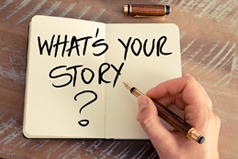|
Respecting Anonymity
Just
what does anonymity mean, anyway? Not the dictionary definition of the
word, but what does it mean to me and my recovery? How can I put it
into practice?
I think that: It’s up to me, and only
me, to tell people that I’m in CoDA. I tell some people, but not
others, about my being in recovery. I want to make that choice myself.
I do not want others to take away my choices by breaking my anonymity.
I
think that: I only feel safe in meetings where I feel that
my anonymity will be maintained by everyone there. I felt emotionally
unsafe during much of my childhood. In recovery, I have an opportunity
to learn how to create safe spaces for myself, and I want to be among
safe people. Respecting anonymity and avoiding crosstalk are two
practices that are crucial to my sense of safety.
I think
that: When I see somebody out in the “real world” that I
recognize from a meeting, I should not speak to them (unless they give
me a sign that it’s OK). Maybe they don’t want to be recognized and
acknowledged outside of a meeting. Especially if they are
not alone, when a companion would ask, “How do you know her?” or,
“Who’s that?”
I think that: I should not identify
anyone else as being in recovery. I need to be careful that I not name
anybody that I know from meetings. Even if I’m talking with other
people in recovery.
I think that: If I choose to
give my last name or other personal information to someone, I expect
that person to keep it confidential, that they not share it with others.
I think that: Anonymity is crucially important to me, and to this program.
Judi T. (2000) |




Recent Comments